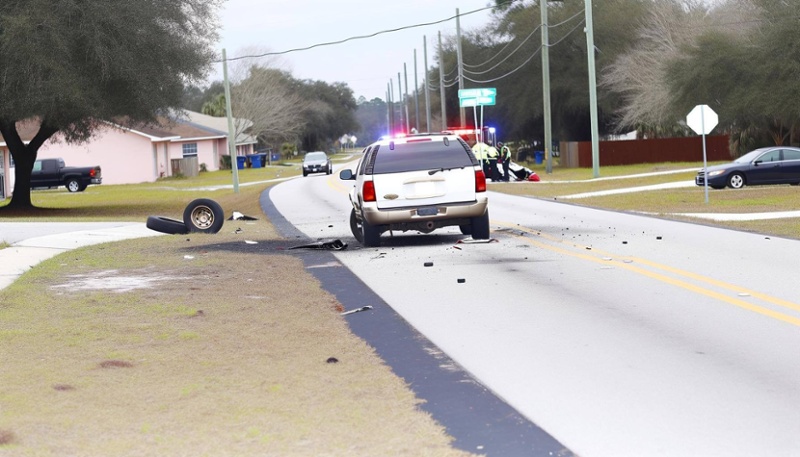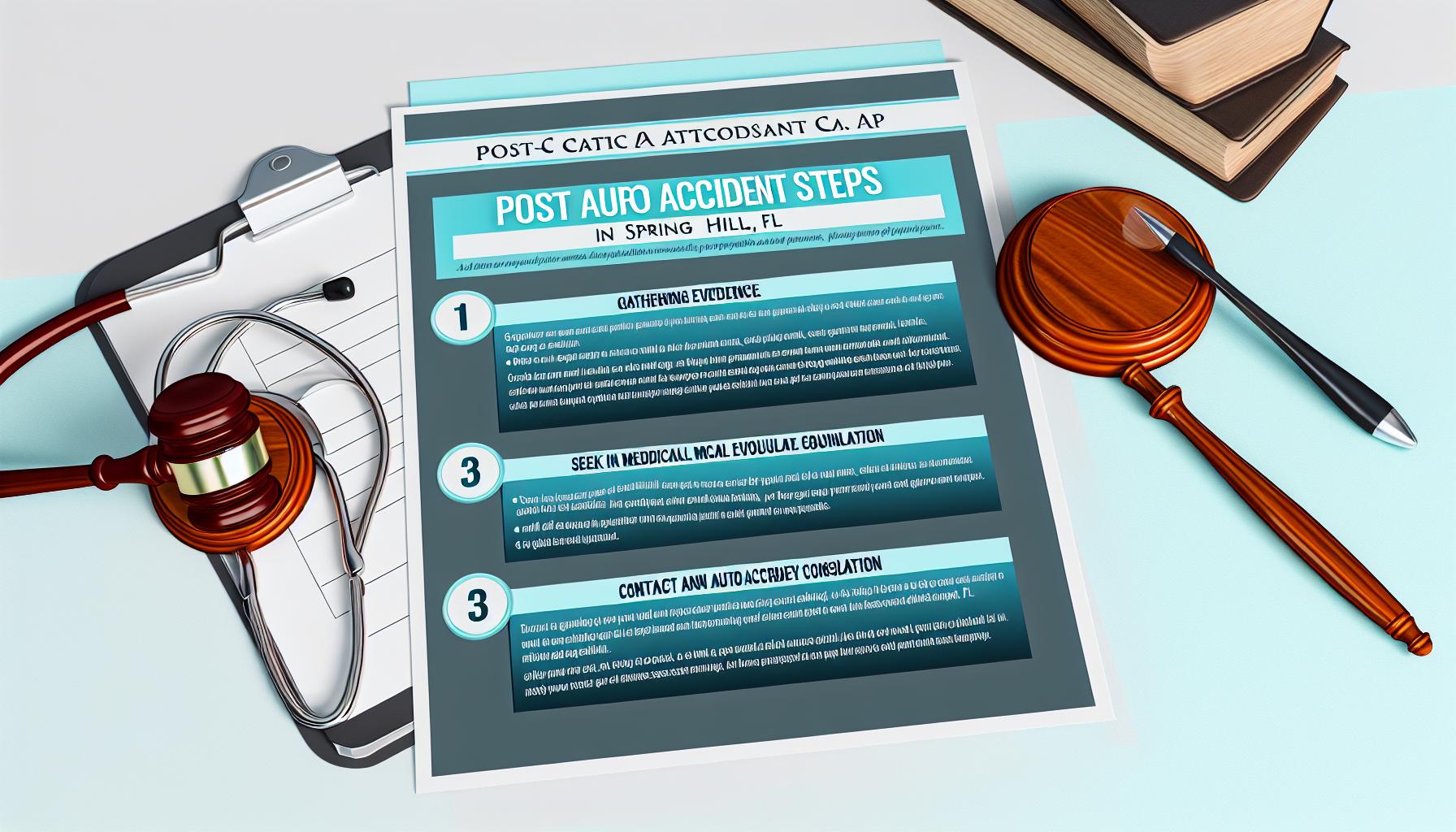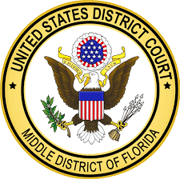Understanding Rear-End Collisions in Florida
As car accident attorneys in Spring Hill, FL, our attorneys have seen how quickly a car accident can occur. One moment, you are sitting at a red light, and the next moment, someone has ran into the back of your vehicle causing you and your family to sustain injuries that will last for years, if not the rest of your life. In fact, according to the Florida Department of Highway Safety and Motor Vehicles, there were an estimated 402,385 car accidents that occurred state-wide in Florida in 2017, and according to the National Highway Traffic Safety Administration, there were an estimated 37,133 people killed in car accidents nationwide in the United States.
Of the fatal accidents that occurred in 2016, the Insurance Information Institute estimates that 6.8%, or 2,350, fatal accidents involved a rear-end collision, and while fatal crashes involving a rear-end collision are in the minority, being rear-ended is probably one of the most common types of car accidents that occur on the roads in Florida. Consequently, there are a few things that you should be aware of if you or a family member has been involved in a rear-end collision.
Who is at Fault in a Rear-End Accident?
You, like many people, may be under the impression that if you rear-end someone, you are automatically considered at fault for the accident, and while this may be true in many cases, it is not true all of the time. Many car accident claims are decided based on the evidence that can be gathered to determine exactly how the accident occurred. The Florida Supreme Court defines negligence as a “failure to use reasonable care, which is the care that a reasonably careful person would use under like circumstances.” Essentially, “negligence is doing something that a reasonably careful person would not do under like circumstances or failing to do something that a reasonably careful person would do under like circumstances.”
Consequently, it is possible for a person to negligently cause a rear-end collision as the driver that was rear-ended. The primary question is what type of evidence can be produced to prove that the other driver was negligent and caused the accident to occur. Common scenarios where a driver that was rear-ended can actually be deemed as being responsible for causing the accident include:
- Cases of road rage
- Cases where the other driver was intoxicated; or
- Cases involving fraud such as when a driver purposely hits their brakes to cause an accident
Types of Evidence
Evidence to Gather after a Car Accident
Regardless of whether you were rear-ended or you rear-ended someone else, there are certain types of evidence that you should always gather at the scene of the accident. Remember, this evidence can be crucial to your claim, because it allows your auto accident attorney to recreate or reconstruct the accident scene with as much detail as possible. This, in turn, allows your attorney to build the strongest claim possible against the at fault driver.
Photos of the accident scene and both vehicles
- Getting photos of the accident scene as it appeared at the time of the accident is a crucial part of building any car accident claim. Essentially, obtaining these photos allows your attorney to analyze how the collision occurred based on the photos of the vehicles and any external factors at the accident scene that might be relevant to your claim such as the conditions of the roads, whether there might have been video cameras that recorded how the accident occurred, or even the weather at the time of the accident.
Video footage of the accident
-
Dash cams, security cameras, and traffic cameras are becoming more and more common every day, and video footage of an accident occurring can be a compelling piece of evidence to present to an insurance company or jury. As such, if you have video footage of the accident or can identify a business that might have video footage of the accident, inform your lawyer of this information as soon as possible.
A copy of the crash report and the other driver’s insurance information
- As a general rule, you should always exchange insurance information with the other driver involved in an accident and obtain a copy of th crash report from the police at the scene, regardless of whether the accident you are involved in is serious or minor.
- The crash report may not be immediately available, but it can be purchased online through the Florida Department of Highway Safety and Motor Vehicles. Obtaining this information prior to speaking with an attorney will not only allow you to fully discuss the accident during your initial consultation, but it will also allow your lawyer immediately start building your claim without delay.
Common Injuries after being in a Rear-End Collision
Following an accident, you should always at least get evaluated by a physician to determine whether you have sustained any accident-related injuries or if you know you were injured, the severity of those injuries. Under Fla.Stat. § 627.736, you are given 14 days following an accident to seek medical care under your personal injury protection (PIP) insurance. This is known as the “14-day rule,” and if you attempt to seek medical care after the initial 14 days following an accident has expired, your insurance carrier may refuse to cover your medical expenses under your PIP policy.
Whiplash
Rear-end collisions are one of the primary causes of whiplash injuries in the United States according to John Hopkins University. The impact of the vehicles colliding can cause your head to move back and forth suddenly and violently. This motion, in turn, can cause the muscles in your neck to tear leading to pain, stiffness, and a loss of motion, and while whiplash injuries are treatable, they often go untreated, which can cause a victim’s symptoms to intensify. These symptoms include:
- Neck pain
- Neck stiffness
- Shoulder pain
- Low back pain
- Dizziness
- Pain in your arm or hand
- Numbness in your arm or hand
- Ringing in your ears
- Blurred vision
- Concentration or memory problems
- Irritability
- Sleeplessness
- Tiredness
As you can see, whiplash symptoms can both intensify and move beyond what is considered a minor injury, which is why you should always get evaluated by a physician after being involved in a car accident, regardless of whether it was severe or minor.
Bulging or Herniated Disks
Whiplash injuries often occur in combination with herniated or bulging discs in the neck, and while a herniated or bulging disc is a serious injury that can cause symptoms such as pain, radiculopathy (numbness and tingling down the arms and legs), and problems walking, according to the University of Florida College of Medicine, 80% of herniated disc injuries can be treated conservatively. However, even conservative treatment can be expensive. Necessities such as medication, doctor’s appointments, and diagnostic testing can often cause you to incur thousands of dollars in medical bills, which is why obtaining competent legal representation is such an essential part of ensuring that you obtain the compensation you need to make a speedy recovery.
Concussions
In certain rear-end collisions, the impact of the vehicles colliding is so strong that it can cause your head to strike the steering wheel or the side window of your vehicle. In these situations, head injuries commonly referred to as concussions or traumatic brain injuries (TBI) occur with a high degree of regularity. In fact, according to the Center for Disease Control (CDC), motor vehicle accidents were the second leading cause of concussions in the United States in 2014.
When your head strikes a hard object like a steering wheel, it can cause an interruption in normal functioning. This interruption is what is ultimately responsible for concussion-related symptoms such as headaches, memory loss, blurry vision, and a decrease in cognitive functioning. Car accident victims that have suffered a TBI might not even be immediately aware of the severity of their injuries, which is why seeking medical attention following an accident is always a good idea.
Rear-End Collision Lawyer in Spring Hill, FL
At Peck Law, our auto accident attorneys understand the strain that being involved in a car accident can place on your family, finances, and personal life, but our car accident lawyers are dedicated to helping you seek the compensation you need and the justice you deserve.
So, if you or a loved one have been involved in a car accident, call the law offices of Peck Law today for a free, confidential consultation with one of our car accident attorneys.





